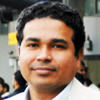KSA’s bold move against terrorism

Saudi Arabia has not been a stranger to stray acts of violence notably by Al-Qaeda in the past but the Kingdom managed to stamp out the terror and terror outfit. This is the first time that the country, which also happens to be the largest oil producer in the world, has witnessed such attacks of openly sectarian nature targeting the Shiite minority.
This is why these audacious attacks announcing the Daesh’s arrival in the heart of the Arabian Peninsula and citadel of Islam are so disconcerting. They have rightly been universally condemned by the Saudi and Arab governments, media and civil society in one voice. King Salman condemned the mosque bombings saying he was “heartbroken” over the violence and dispatched Crown Prince Mohammed bin Naif, along with the Grand Mufti, to the Eastern Province to offer condolences.
Eminent Saudi intellectuals have warned against attempts to divide the Saudi society and the larger Arab and Islamic world along sectarian lines. Mohammed Fahad Al-Harthi, editor in chief of Arab News, argued that the greatest threat to the Arab world today is sectarianism.
Those responsible for these attacks are driven by “an insane ideology,” wrote Khaled Almaeena in Saudi Gazette. “For too long, we have kept quiet as they used the mosques, the media and all other forms of communication to spread their evil philosophy.” Another Saudi intellectual Tawfiq Al-Seif told Reuters that the attacks “rekindle a feeling of fear that we are not looking at isolated incidents.” Kuwaiti analyst Ghanim Al-Najjar blamed the violence on “the discourse of hate” prevailing in the region.
Without doubt, the cowardly attacks targeting innocent worshippers and houses of God, whether Sunni or Shia, are a flagrant act of aggression against all Muslims and tenets and teachings of Islam. This is a war on humanity itself. The Saudi attacks have coincided with the stunning Daesh gains elsewhere in the neighborhood — the fall of Ramadi in Iraq and the fabled city of Palmyra in Syria known for its majestic Roman ruins, a UN World Heritage site — sending shockwaves across the region and around the world. The mindless destruction of the prized heritage is only a footnote of this unfolding tragedy.
The US and western officials and their Arab allies are justifiably alarmed with many in the region questioning the effectiveness of the strategy adopted by the US-led grand coalition in taking on the black hordes of the Daesh.
The statements emanating from Washington and other western capitals spawning apocalyptic scenarios aren’t exactly helping. In his keynote speech to the US-Islamic World Forum in Doha, Gen. John Allen, Washington’s envoy to the US-led coalition, warned that “defeating IS (Daesh) ideology will likely take a generation or more. But we can and we must rise to this challenge. In an age when we are more interconnected than at any other time in human history, IS is a global threat.”
If Daesh wasn’t defeated, the US commander cautioned, it could “wreak havoc on the progress of humanity.” Look, who’s talking!
In similar vein, in his grandly titled memoirs, The Great War of Our Time: The CIA’s Fight Against Terrorism from Al-Qaeda to Daesh, former CIA official Michael Morrel suggests that the militants could unleash another 9/11 like attack on the US soil killing thousands of people.
While few of its allies in the region would question Washington’s threat assessment about the Daesh given the appalling antics of the militant army over the past year or so, one has an uneasy sense of déjà vu about this whole mess.
Haven’t we been here before? These are the same guys who plied us endless legends about Saddam Hussain’s nonexistent Weapons of Mass Destruction and his support to Al-Qaeda. After the catastrophic fiascos of Iraq and Afghanistan, is it any wonder if the Western warnings about the latest ‘clear and present danger’ to emerge from the Middle East are met with some degree of skepticism? For the US security ‘assessments’ and political assumptions about the Middle East have often turned out to be wildly fantastic and far from accurate.
Ironically though, this time around the West may not be far off the mark in its threat assessment about the Daesh designs. The fact that the Daesh continues to grow and mutate like a hydra-headed monster fast expanding its presence across the Middle East attracting men and women from across the Muslim world and Western lands makes it truly an unprecedented and deadly phenomenon. Something never before seen in the region’s history and with a degree of success that could not be achieved by Al-Qaeda although it was much lionized and hyped up by Western agencies to justify the forever war and continuing military presence in the region.
No wonder the Arab and Muslim nations are as agitated and alarmed about the gathering storm as the West appears to be. And the new attacks making the Daesh debut in Saudi Arabia, Tunisia and Pakistan suggest that they have every reason to be worried.
Doubtless, it is a formidable threat and needs to be tackled collectively by bringing everyone on board, both Muslim nations and western powers which are chiefly responsible for creating and confounding the current mess in the Levant and the greater Middle East. They are the ones who created and fueled this Shia-Sunni rift in Iraq in the first place, replicating it across the region with terrible and far reaching consequences. The Daesh is only looking to exploit and expand it. Every time an issue and conflict — from Iraq to Yemen and Syria to Lebanon — is cast and portrayed in sectarian terms, the extremists win.
When the Muslims are divided in terms of Sunnis and Shias and fly at each other’s throats, it is Islam that stands to lose.
For its part, the West with all its military resources, experts and awesome firepower at its disposal seems to have drawn no lessons from its long ‘war on terror’ and experience of fighting groups like Al-Qaeda.
All said and done, you cannot win this war against the Daesh or any other extremist group for that matter without confronting the factors and causes that gave birth to them. As Arab journalist Rami Khouri notes, military and intelligence actions may have curtailed the ability of groups like Daesh to strike in Western countries, but the continued underlying generators of Daesh recruits remain in place and overwhelm the impact of military strikes: “It’s not the war against ISIS that is “long,” rather it’s the conditions of inequity, oppression, imperial reach, state violence and mass deprivation that have gone on for such a long time that they have finally erupted in the form of the terrible revenge called ISIS.”
They that sow the wind, shall reap the whirlwind.
Disclaimer: Views expressed by writers in this section are their own and do not necessarily reflect Arab News' point of view










































